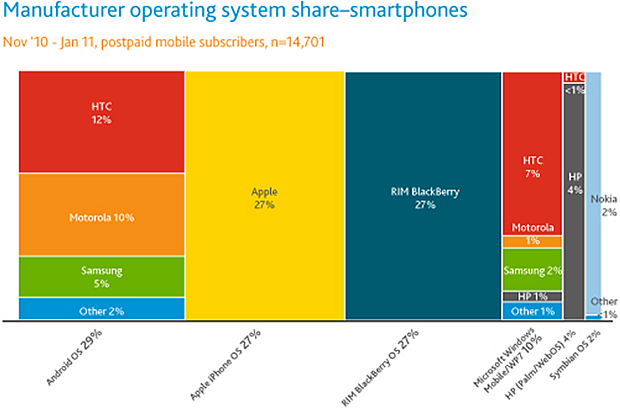The patent war is heating up. After being foiled by Apple, Microsoft and RIM to acquire Nortel Networks’ patent portfolio, Google is now acquiring Motorola Mobility primarily for its patent portfolio. The thing is, Motorola builds it’s own Android mobile phones and tablets. Back when Nokia was still exploring Android, it asked for preferential treatment, which Google rightly denied. One of the reasons that led Nokia to instead go to the Microsoft and the Windows Phone platform. Now that Google will own Motorola, will it be giving preferential treatment? Will it be able to avoid doing that? This is probably something all of Google’s Android partners are thinking even as they heap praise on Google for this latest move.
I read the GSMArena review of the upcoming Nokia N9 and I was quite impressed. The hardware, as with the Nokia N8, is quite good. The software, MeeGo, seems to be as good, if not at par, with iOS and Android. And with Alien Dalvik, it can actually run Android apps via emulation. Yet, the N9 will be coming out under planned obsolescence: it was confirmed to be the final MeeGo phone as Nokia’s dark union with Microsoft bears fruit to the N9’s lesser twin. Nokia already knew what MeeGo was and what MeeGo will be when they decided to go to bed with Microsoft. MeeGo was even then better than WP7. And yet they pushed on. What’s up with that?
Android has pretty much won the smartphone operating system wars. Not that Apple or Blackberry will be going away anytime. In fact, given the historic resilience of Apple, it will probably remain as a major player catering to a specific market. Now, with the release of Android 3.1 Honeycomb Google encroaches more and more into tablets and netbooks operating systems. Soon it will be notebooks and desktops. I wouldn’t be surprised if they eventually go to server operating systems.

Nielsen released data on smartphone market share as of Nov 2010 to Jan 2011. From an OS perspective, definitely it shows the Android juggernaut’s seemingly unstoppable rise to the top. From a hardware perspective, it’s interesting to note how Apple and Blackberry(!) still hold a huge chunk of the market. But HTC is waiting on the wings.
It seems that at this point, focusing on iOS development is still a good strategy. Noting, of course that the other iOS devices, iPad and iPad 2, are the leaders in the tablet space. But investing in Android development should already be in the pipeline.
“WTF!” was my immediate reaction when I read about Nokia CEO Stephen Elop’s announcement that Nokia is partnering with Microsoft and putting Windows Phone 7 in their phones.
A few days ago, Elop sent out a memo likening Nokia to a burning oil platform. There was anticipation that a big change is coming, perhaps Nokia joining the Android juggernaut or perhaps Nokia joining Elop’s former employer Microsoft.
Unfortunately, it was the latter. Apparently, Elop has decided that they Nokia must first and foremost beat Android. I guess this is a nod that Android will beat the iPhone. Unfortunately, his decision precludes choosing Android. Too bad since, choosing Microsoft is IMHO just dumb.
The iPhone is formidable because it is such a tightly-controlled well-directed “closed but powerful ecosystem”, to quote Elop himself. More importantly, behind that control and directions is a true visionary: Steve Jobs. It also enjoys with a considerable lead time in the market and in the number of developers and apps.
Android is formidable because, being open, a lot of players can (and did) join in: HTC, Motorola, SonyEricsson, Samsung, and LG. Even the KIRF makers in Shenzen are joining in. With the huge marketing effort by these players and the huge availability of phones, comes a lot of developers and apps. Who cares about fragmentation? The PC is fragmented. There is no doubt Android will beat iPhone. It’s the PC vs Apple II all over again.
But WP7? It is the descendant of Windows CE and Windows Mobile both of which were failures. The constant rebranding should be clue enough. Symbian is not any worse than WP7. Heck, Symbian has more apps and developers than WP7!
There could be some synergy in Microsoft and Nokia working together, combining their strengths in marketing and technology development. But such close cooperation might actually alienate HTC and others who also make WP7 phones, nudging them completely to the Android side.
Elop has just failed Nokia’s stockholders.
UPDATE: I guess investors feel the same way because Nokia’s stock took a dive a bit after the announcement.